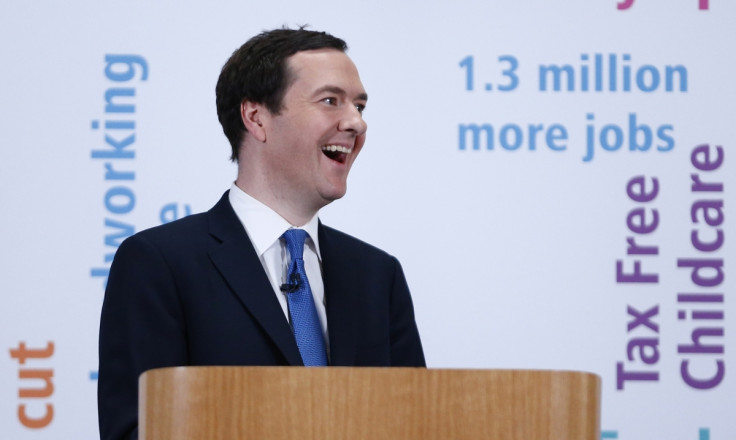George Osborne: I Made Biggest Tax Reforms in a Generation

Chancellor George Osborne is claiming he has made the most significant reforms to the British tax system for a generation.
Osborne has slashed income tax, corporation tax, as well as other business and employment levies despite his multi-billion pound austerity programme to erase the deficit in public finances.
Almost three quarters of his austerity plans have come from public spending cuts rather than tax rises. Much of the cuts have fallen on the UK's sizeable welfare bill.
In a speech at the Port of Tilbury in Essex, Osborne said the start of the 2014/15 tax year from April 1 is "the most important week of changes to our tax system for a generation".
"These are the biggest cuts to personal and business taxes for two decades, and we're making our benefit system more affordable and fairer too," he said.
"This week's tax and benefit changes directly affect you - and they directly help you. This week you will keep more of the money you earn.
"This week your business can keep more of the money it makes, so you can invest, expand and create new jobs."
The personal allowance – the earnings threshold at which an individual starts paying income tax – is hitting £10,000 after several consecutive increases by the coalition government from its £6,500 level in 2010.
In his 2014 budget, Osborne lifted the personal allowance by a further £500 from 2015/16.
Corporation tax will fall again to 21%, from 23% during the 2013/14 year. Osborne also doubled the annual business investment allowance – which is tax deductible capital expenditure – to £500,000.
He has also extended the £1,000 business rate relief scheme to 2015, trimming the high street's tax bill.
Furthermore, there is the employment allowance which gives firms a £2,000 tax break on their employee national insurance contributions for each staff member.
"A lot of people don't realise this, but when a company employs someone, they don't just have to pay their salary - they pay a tax to the government," said Osborne.
"It's called employer national insurance but it's really a jobs tax - and it can discourage a company, especially a small one, from hiring someone.
"With this new employment allowance there's no jobs tax for many firms and so no obstacle to creating jobs."
Osborne added that he is targeting full employment in the UK economy.
© Copyright IBTimes 2025. All rights reserved.






















